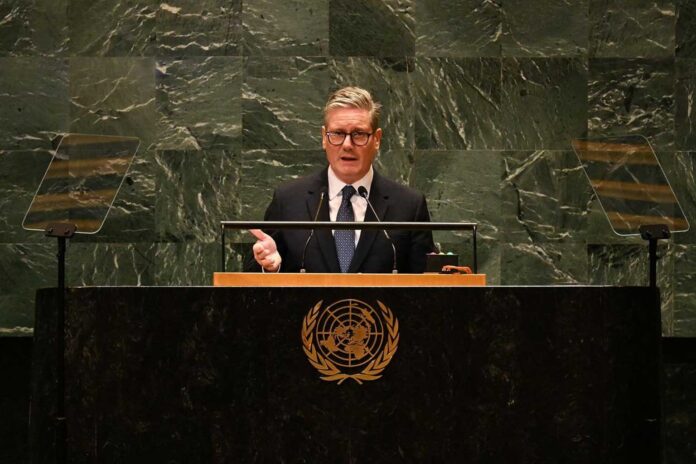In a significant diplomatic push, UK Prime Minister Keir Starmer has endorsed India’s bid for a permanent seat on the United Nations Security Council (UNSC). This support from the UK aligns with similar backing from key global leaders, including US President Joe Biden and French President Emmanuel Macron. The endorsement signals a growing global consensus on the need for reform within the UNSC to reflect contemporary geopolitical realities.
During an official statement, Starmer highlighted India’s increasing influence on the global stage and emphasized its vital role in addressing pressing global issues such as climate change, economic recovery post-COVID-19, and counter-terrorism. He also noted that India’s expanding economy and its leadership in the Global South have further strengthened its case for permanent UNSC membership.
India’s aspirations for a permanent seat have long been supported by several nations, including those within the G4 group—Brazil, Germany, Japan, and India. These nations advocate for reforming the UNSC to make it more inclusive and representative of today’s world, with a particular focus on increasing representation for emerging economies and developing countries.
This growing support comes at a time when discussions about the reform of global institutions have gained renewed momentum. The UNSC, with five permanent members—China, Russia, the United States, the United Kingdom, and France—has often been criticized for its structure, which reflects the post-World War II order rather than current global dynamics.
India’s diplomatic efforts have been relentless, with its officials advocating for a reformed multilateral system that accounts for the changing world order. The Modi administration has consistently raised this issue at major international forums, including the G20 and the UN General Assembly. Starmer’s endorsement further strengthens India’s position, signaling that Western powers are increasingly acknowledging the importance of including major emerging economies in decision-making at the highest global level.
French President Emmanuel Macron and US President Joe Biden’s earlier declarations of support for India’s permanent UNSC membership underscored the growing importance of India on the world stage. Macron, during his state visit to India earlier this year, described India’s inclusion as necessary for global balance, while Biden echoed similar sentiments at the recent G20 summit, where India was hailed as a key player in multilateral diplomacy.
However, challenges remain. China, one of the permanent UNSC members, has repeatedly blocked India’s bid, arguing for a consensus-based approach to reform that reflects the views of all UN member states, including developing countries. The geopolitical tensions between India and China, particularly over border disputes, have further complicated India’s bid. Analysts point out that without consensus among all current permanent members, reform of the UNSC will be difficult to achieve.
Despite these obstacles, India’s prospects for a permanent UNSC seat have gained momentum, bolstered by growing international support. Observers suggest that the global community’s increasing recognition of India’s role as a responsible global leader and its contributions to peacekeeping, climate change mitigation, and international security could further strengthen its case.
As the debate over UNSC reform intensifies, India remains steadfast in its pursuit of a permanent seat, with broad diplomatic efforts aimed at building a strong coalition of supporters. Starmer’s backing adds yet another layer of legitimacy to India’s bid, and it is likely that the issue will continue to be a focal point in international diplomacy in the months to come.
The question of reforming the UNSC has been an ongoing issue for decades, but the urgency to make the council more reflective of current global power dynamics is increasingly evident. For India, securing a permanent seat would mark a historic achievement, positioning the country as a pivotal actor in shaping the future of global governance.










